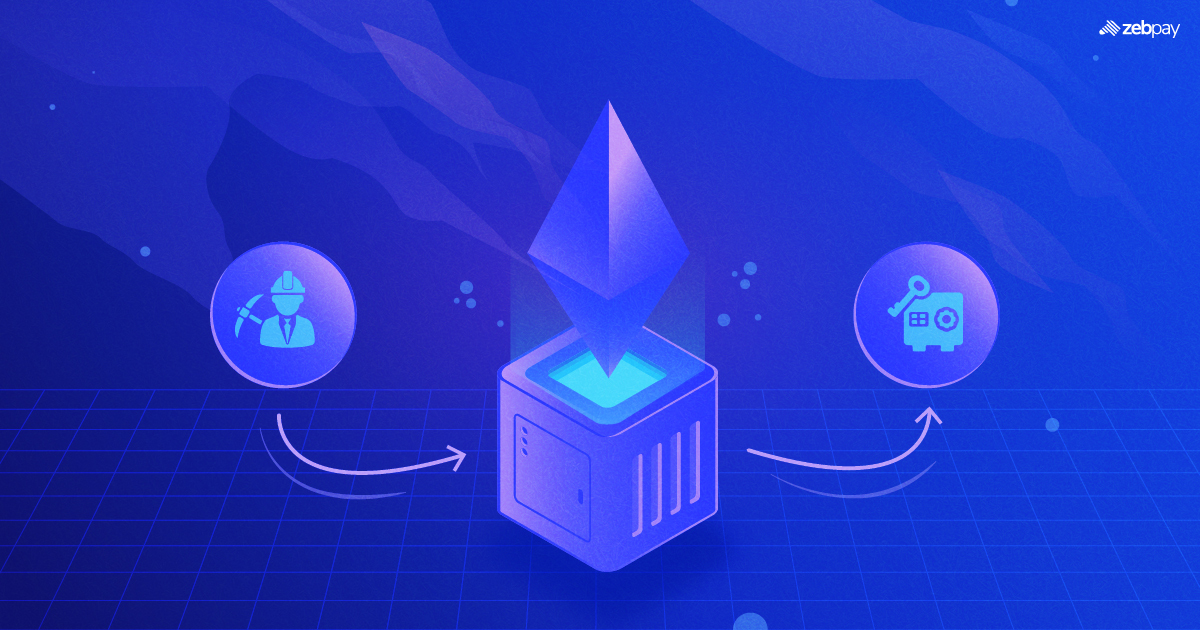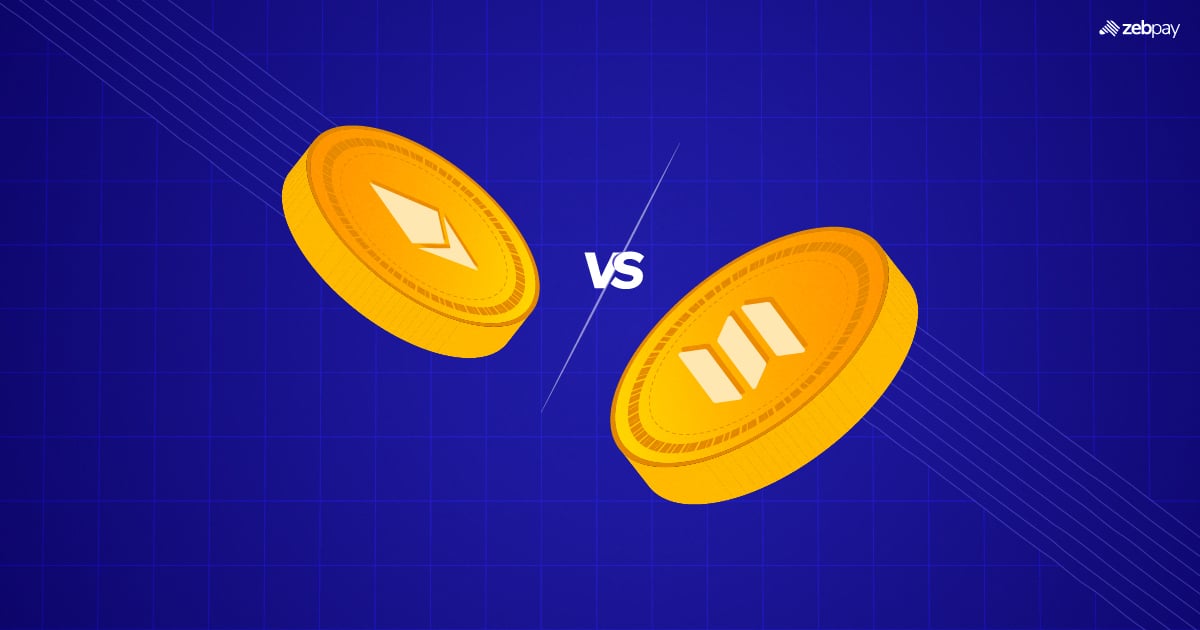The Ethereum Merge has been successfully completed on the 15th of September, 2022. If you are curious to know more about this landmark event, then you are at the right place.
Ethereum is a Crypto that needs no Introduction. It has revolutionised the Crypto landscape with endless possibilities. Ethereum currently ranks second to Bitcoin in market capitalization.
Ethereum Blockchain was being operated on a Proof of Work (POW) consensus mechanism. As of 6th September, the Bellatrix Upgrade, which is the first stage of the Merge process, was completed. Ethereum has now moved to a Proof of Stake ( POS) consensus mechanism after the Paris Upgrade of the Merge. This shift is said to make the Ethereum Blockchain efficient by 99.95%.
All Upgrades of the Ethereum network are part of an elaborate development roadmap that aims to make Ethereum the most reliable, sustainable, and scalable Blockchain solution in the world.
Ethereum Merge: Proof of Work Vs Proof of Stake

Under POS, the transactions are validated based on ETH staked by several validators. This mechanism is much more energy-efficient in comparison to POW, and the energy consumption is nearly 99% lower. The Ethereum community has been working on the transition to POS since 2015 when the blockchain was launched.
As a step towards the transition, the Beacon chain was launched in December 2020 by Ethereum, a system that works on a Proof of stake structure.
Read more: Proof of Work (POW) vs Proof of Stake (POS)
Ethereum Merge Dates
Two upgrades have taken place as a part of the Merge process
- The Bellatrix Upgrade happened on 6th September 2022 at 16:30 IST (11:00, UTC). This upgrade bought the Beacon chain layer of Ethereum which runs on Proof of Stake(POS) to the Ethereum chain which ran on Proof of Work earlier ( POW).
- The Paris Upgrade happened on the 15th of September 2022, at 12:12 IST( 6:42, UTC). This upgrade switched Ethereum from Proof of Work (POW) to Proof of Stake (POS).
What Happened Before The Merge?
The Beacon chain protocol was executed before the Merge. This upgrade introduced staking to Ethereum. The beacon chain is a ledger of accounts that connects Stakers. So, to run the Ethereum Validator Software one need not solve complex problems and mine coins but can instead stake Ethereum, validate transactions, and in turn receive ETH as a reward. The POS blockchain also can punish users who stake their crypto in case they turn out to be bad actors.
What Happens After The Merge?
The next stage after the Merge is Sharding. Sharding is a process of splitting the data amongst the nodes of the network. This will reduce network congestion and increase the transaction speed. As per Vitalik Buterin, Ethereum will be able to process close to 100,000 transactions per second in the future. This is way more than the current rate of 25 Transactions per second. Sharding of the Ethereum network should take place sometime in 2023, depending on how fast the Merge development takes place.
Sharding enables data to be distributed which reduces the load on each node. Thus lesser processing power is enough to run a node. This makes running a node affordable and will help in the decentralisation of the Blockchain network to a greater extent. There could be a time when people will be running nodes through their laptops and mobile phones in the future if Sharding is successful.
Read more: Ethereum Upgrade Will Process 100,000 Transactions Per Second
How to Prepare For Merge

Holders of ETH need not worry about their assets. The Merge upgrade in no way affects the holdings of investors. What investors need to be happy about is that this upgrade is set to make the Ethereum Blockchain hyper-efficient. It will mark the end of the Proof of Work ( POW) era for Ethereum and signals the beginning of a much more sustainable Blockchain solution.
The entire history and the genesis of the Ethereum blockchain remain intact. In the long term, the developments of the Ethereum Blockchain will impact its users positively.
Misconceptions About Ethereum Merge
- Merge will not reduce the Gas Fee on the Network. The Merge is changing the consensus mechanism. It does not impact network congestion and transaction throughput. Hence, the Gas fee will not change after the Merge
- Although there might be slight differences in speed. There won’t be much noticeable difference in transaction speed on Layer 1 after the Merge upgrade.
- The Ethereum Merge Upgrade did not downtime the Layer 1 Blockchain. Merge is designed to transition Ethereum to a POS model with Zero downtime.
- Netizens estimate that Staking Annual Percentage Rates(APR) will triple post the Merge. The Ethereum community has denied this claim that Staking rates will increase astronomically. Current estimates as mentioned on the Ethereum website predict that there might be an increase of 50% in APR.
- It is also talked about that users have no role to play in this entire upgrade. Users can be part of the process by staking ETH or running a node. Users who have technical knowledge can also be part of Ethereum’s bug bounty program.
Read about: What Is Blockchain Layer?
Final thoughts
The Merge is a positive step toward making Ethereum more scalable, decentralised and sustainable. The development road map for Ethereum Merge is projected to reduce costs dramatically, thereby making Blockchain technology more accessible to everyone. More innovators can eventually build their ideas on the Ethereum Blockchain because of the Merge.







